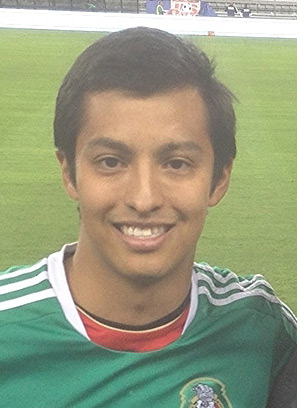
Before Brazil
By Eduardo Cervantez
Hello, Everyone
My name is Eduardo Cervantez, and I’m a current senior that will be graduating in the fall of 2014 and my major is sustainability, Energy, Materials and Technology track. I call home Oakley, California which is located about 45 minutes from San Francisco. I currently work at Trader Joe’s in Scottsdale, and I coach soccer for the Pro’s Soccer Club in Tempe. My hobbies consist of playing soccer, hiking, traveling and just seeing what next adventures await in my life!
I’m really looking forward to this adventure with all of you guys because we will embark on an amazing journey to explore the issues of sustainability and human rights. I feel that we couldn’t be in Brazil at a better time. Brazil at this current moment is getting ready to host the FIFA World Cup and will allow us the opportunity to analyze the human rights issues and see the sustainability progress in preparing for this event.
Based in the reading, we have come to realize that human rights is defined in different ways, and it’s a progressive subject all over the world. This topic is so complex for several reasons because sovereign nations have their own points of view on this. As we have seen through history the human rights concepts has evolved dramatically. In Brazil, we will also see how the World Cup has been impacting people but at the same time, see how the progress in technology has demanded civil rights to be modified for certain groups of people. Just like in every issue you have two sides of each story and being in Brazil will allow us to really assess the situation. We will compare Brazil’s situation to the United States and this trip will teach us valuable lessons that will forever change our lives.
We will also analyze sustainability in Brazil and see how they have progressed in developing their nation. One city we will visit, Curitiba, is considered to be one of the most sustainable cities in the world. We will be allowed to look at the social, environmental and economics of the sustainability triangle in a live setting. Many of us have studied so much about sustainability in our classes but have yet to have hands-on experience. To really see how sustainability has evolved in Brazil will allow us to really learn more about sustainability in a different setting. In the reading, it talks about how the human population has transformed the world and how it has led to an increase of carbon emissions. Being in Brazil will allow us to examine sustainability and see what they are doing to help contribute to reducing carbon emissions. It will also help us understand how we can make a difference every day in making sustainability truly resilient.
On our trip we will explore how Brazilians work together and how they can sometimes affect each other negatively or positively. It’s important to look at the sustainability triangle because ultimately this helps us understand human rights under the sustainability framework. One of the readings talks about how environmental quality links with human rights. The nexus of these two will bring us on a journey around Brazil to explore what is happening there while at the same time give us the opportunities to conduct hands-on research with all stakeholders.
Finally what is important to me about sustainability is to find a way that we can create stacked systems that can be resilient. It won’t be an easy task to accomplish, but I will strive to put my little grain of salt to make a difference. At the same time, human rights will be an important issue that will come up in my progress in making sustainability attainable. My primary focus on this trip will be how Brazil is trying to progress in becoming a developed nation in using the sustainability framework while at the same time ensuring they are keeping human rights in mind and being fair with everyone.

